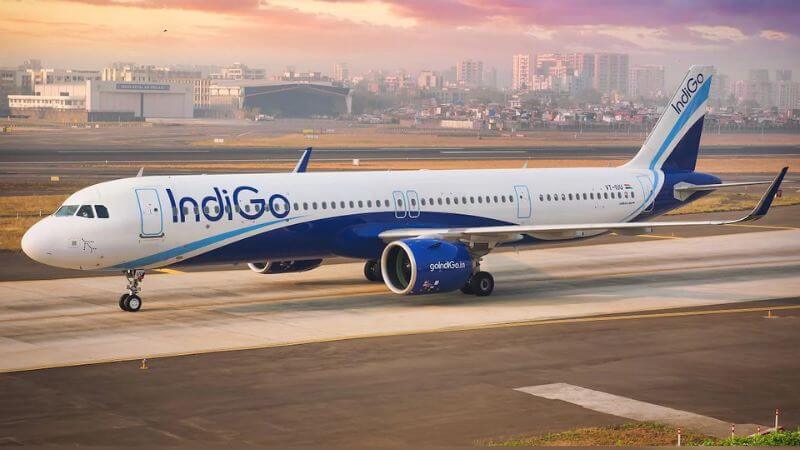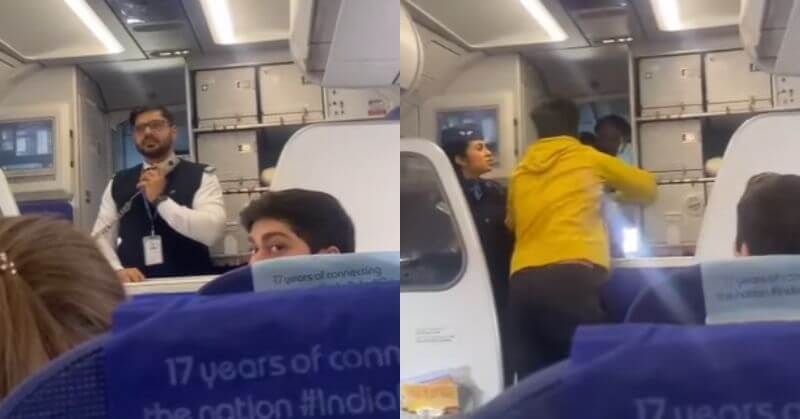In a startling event at Indira Gandhi International Airport, a routine Delhi–Goa IndiGo flight faced upheaval. Passenger Sahil Kataria’s assault on the captain during a delay announcement shocked onlookers. The incident, caught on video, sparked intense social media debate, highlighting wider anxieties about passenger conduct and IndiGo’s handling of delays. This disruptive act serves as a catalyst for examining the broader dynamics at play in the aviation industry.
IndiGo Swift Response And Legal Action

Reacting promptly, IndiGo filed a formal complaint with IGI airport authorities against Sahil Kataria. The severity of the assault triggered legal measures, with a case registered under section 323/341/290 of IPC and 22 aircraft rules. The ongoing investigation, led by IGI Airport DCP, aims to unravel the specifics of the altercation between Kataria and co-pilot Anup Kumar.
Video Sparks Debate And Raises Operational Questions
View this post on Instagram
The widely circulated video depicts Kataria, donned in a yellow hoodie, assaulting the captain while a vigilant flight attendant intervenes. This incident has fueled a robust debate online, with some sympathizing with Kataria’s frustration, blaming IndiGo for insufficient communication regarding delays. The episode spotlights the growing discontent among passengers and underscores the need for airlines to enhance transparency in their operations.
Moreover, the incident sheds light on the operational challenges faced by IndiGo. The airline, grappling with delays, replaced the crew due to Flight Duty Time Limitations (FDTL) regulations. The captain, citing a “13-hour” delay, faced backlash from passengers, further emphasizing the importance of effective communication and management during unforeseen disruptions.
Passenger Justification Vs. IndiGo Airline Accountability

While some passengers empathize with Kataria, asserting that IndiGo’s communication lapses fueled the frustration, critics demand accountability for the assault. The incident prompts scrutiny of the airline’s role in ensuring a smooth travel experience, prompting a necessary evaluation of operational practices and communication strategies during disruptions.
In the digital age, such incidents quickly become focal points for public opinion. Some argue that Kataria’s actions are an extreme response to common travel grievances, while others stress the importance of maintaining respect for the airline staff, regardless of the challenges faced.
Calls For Accountability And Repercussions
Indigo passenger who hit captain was picked up by airport security personells
Delhi police says that we have received a complain and are taking legal action. #Indigo #Airport #avgeeks #aviation #delhipolice #Fog pic.twitter.com/QmEWLGEpmh
— Nikhil Lakhwani (@nikhil_lakhwani) January 15, 2024
Despite the varied opinions, a common sentiment emerges—accountability for the passenger’s assault is essential. Calls for legal consequences and placement on the no-fly list intensify, reflecting the broader need for passengers to express their grievances through appropriate channels. Simultaneously, this incident casts a spotlight on IndiGo’s operational shortcomings, urging regulatory bodies and the government to address and rectify systemic issues. However, The passenger was seen apologizing for his behavior while being taken under police custody.
The IndiGo passenger assault incident serves as a poignant reminder of the challenges airlines face in managing disruptions and passengers’ imperative role in maintaining decorum. It underscores the necessity for clear communication during delays, urging airlines to proactively address operational shortcomings. As authorities investigate this incident, they prompt a collective reflection on fostering a safer and more respectful air travel environment for both passengers and airline staff alike.
Follow Us: Facebook | Instagram | Twitter |
Youtube | Pinterest | Google News |
Entertales is on YouTube; click here to subscribe for the latest videos and updates.














